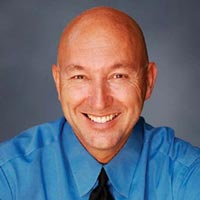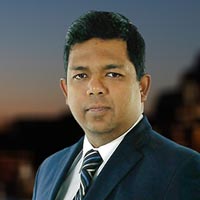Episode #337: How to develop an effective blueprint to achieve the practice results you deserve
Listen Now
Podcast: Play in new window | Download
Subscribe: RSS
Your practice should give patients a reason to come back. This is key if you’re a practice that’s considering to reduce insurance dependency. You can achieve this by having a relationship-driven practice. This differentiates your practice from being a transaction-based practice.
Being relationship-driven helps in making your patients trust you and your practice and makes them choose you for reasons other than being on their insurance plan. In this episode, Gary will discuss very useful tips that’ll help you in creating a relationship-driven practice with a high patient retention rate.
Naren: This is the less insurance dependence podcast show with my good friend Gary Tackas and myself Naren Arulrajah. We appreciate your listenership your time and most of all we appreciate your intention to reduce insurance dependence in your practice. Our goal is to provide information that will help you successfully reduce insurance dependence and convert your practice into a thriving and profitable dental practice that provides you with personal professional and financial satisfaction.
Gary: Welcome to another episode of the less insurance dependent podcast. I’m Gary Tackas your podcast co-host, very excited to bring an episode to you that I know you are going to appreciate and use in your practice. It’s titled “The relationship driven practice”. Your key to successfully dropping PPO plans. On the date of publication of this podcast episode, it’s Christmas eve. So, I want to take a minute and wish all of our listeners a very merry Christmas and a wonderful holiday season. I hope that your Christmas holiday season includes time with family and loved ones. Naren how about you, would you like to add your message your holiday message to our listeners?
Naren: Absolutely, I want to take a moment to first thank every one of you. Gary and I embarked on this project two years ago and we have become a pretty large community on the internet the podcast the social media. So, thank you for everyone who downloads our podcast, everyone who listens to it and even shares it on social media. I want to also wish all of you a Merry Christmas and happy holidays. This is the time of year I guess we all get to sit back take in the year we just had and get ready for the next year. So, hope you get to do that with your loved ones and make 2021 the best year yet.
Gary: Yeah, and Naren, this topic that kind of provides a nice little bridge into this topic and Naren, we I’ve had the opportunity as a coach now to help many practices successfully. Reduce insurance dependence and I’m often asked Gary what is the one key like if there’s one thing that I need to get right to do this, I know from listening to your podcasts I know there’s many things but if there was one thing that I absolutely have to get right and if I don’t get that right there’s it we’re going to have some challenges what is that. Well my answer is a very quick answer it’s to fully develop the relationship driven element of your practice and to wherever you are right now which I would hope that our listeners if we were grading on a report card scale I would hope that our listeners are A or A minus you, maybe on a rough day, maybe on the day when the wheels are falling off we’re only in a minus it’s okay, I’d like to think that our listeners are there but if one thing I want everyone to raise the bar on can a practice be too relationship driven, Naren
Naren: No, No, absolutely not, I mean I think you taught me this Gary. The reason people choose a practice especially in times of COVID where health is one of their top priorities, is they trust the doctor they go to see. So, trust is all about relationships you cannot have trust when there’s no relationship.
Gary: It’s your secret sauce
Naren: Yeah
Gary: It literally is doctor your point of differentiation because nobody else can do it like you like you and it is your secret sauce and it’s absolutely critical that you master the concept of a relationship driven practice and we’re going to share some very specific tips that will help you raise the bar in your practice um and reap the benefits of that because when you’re in relationship with your patients especially in dentistry they do not want to leave, they don’t want to leave, because they are connected to you and your team members and let me emphasize Naren that this is not just a doctor exercise. This is our team as well. We want our team members to be connected with patients and maybe the best way to frame this episode is that wonder wonderful Maya Angelou quote. In fact, we’ll put this in the show notes we’ll put a graphic up in the show notes if you’ve never visited the show notes go to lessinsurancedependence.com and you’ll see the show notes and we’ll put this Maya Angelou graphic in quote and what it says is, people will forget what you did, people forget what you said, but people will never forget the way you made them feel. Think about that let me repeat it for emphasis. People forget what you did people forget what you said but people will never forget the way you made them feel and that’s what a relationship driven practice is. I mean when you can whether it’s a doctor or team member when you can look the patients right in the eyes and this work even with our mask on with COVID era, if I could look the patient’s right in the eyes and say Naren, I’ve been thinking about you, now if I remember right your oldest daughter is doing a gap here this year. How’s she doing?
Naren: She is doing great
Gary: What does that, how does that make how does a patient feel.
Naren: Yeah, we I mean I love that book, how to influence win friends and influence the people and he says in that book Dale Carnegie a man’s best friend is a is a dog because he is interested in you, like you come home like he hasn’t seen you forever and he’s so excited to see you 100 percent of his attention is on you. It’s all about you and that’s the secret right, it’s like nobody cares about a doctor bragging about his life or his vacation or his qualifications but they love it when the doctor starts asking about them because
Gary: There’s a simple reminder of that yeah and again I’ll give dale Carnegie credit because that’s where I learned it. It’s more important to be interested
Naren: Yes
Gary: Than to be interesting and yet what do we often see and doctors just self-reflect on that are, is your behaviour one of being interested or is it one of being interesting and Dale Carnegie will tell you that it’s way more important to be interested because when you’re interested, you’re now playing the role of the dog, you’re interested they’re number one they’re number one. So, I want to share takeaway that all of our listeners can use. Now I’d like to think that you have a good memory well in fact I think I can back that up I don’t believe doctor you could have successfully gotten into dental school and then passed dental school and then passed the boards without a good memory, Right?
Naren: Right
Gary: I you so if you ever if you’re ever engaged in self-talk you just say oh i just can’t remember patient’s name, quit that negative self-talk because doctors you have a good memory your track record proves it first of all you had to excel in high school to get into college and that required some memory. Then you had to excel in college in order to get a dental school and that required more memory and then you had to excel remember your Pharm exam your pharmacy exam in dental school hey some of that’s memory and then the boards some of this memory you all have a good memory quit telling yourself you don’t. So, you while I’d like to think that you all have a great memory that chip in your computer has a better memory than any of us ever will and I think Naren you could reinforce that with your knowledge of IT
Correct?
Naren : Yes, Yes.
Gary: I’m an apple fanboy so the chip in my MacBook Air it’s pretty safe to say and the hard drive has a better memory than I do although I like to think that I’ve got a pretty good memory
Naren: Yeah, absolutely and I think this is where, the computer can become a tool where you can write down things like for example important birth dates, important, events in their life so somebody got married somebody’s kid went to university even important events like, hey they are going on a trip know now we are not going on a trip but hopefully one day we will again. So just asking about those things because when you become interested in them and these notes might help you but I think I totally agree with Gary, don’t say that i don’t have a good memory I used to do that and I think Gary taught me that it’s totally self-defeating and the more you say it more it becomes true. So I think combined with your commitment to, remembering things about people and being interested in people along with the computers I think you can do wonders
Gary: But Naren of course that I am a huge advocate of systems
Naren: Yes
Gary: And if we just count on our memory that’s not a system that’s random that’s random
Naren: Yes
Gary: And by the way if you’re just counting on your memory given the day and events in your life the memory can wax and wane. If you’re involved in some stressful things in your personal life and you’re often distracted because of what you’re doing your personal life the memory can slide a little bit because of that .so I want to systematize it so I learned this from the master Doctor Roma reed and quite literally, he was he was a master at this. I learned it in the early 1980s and you have to go back and remember the technology that was available and not available in the early 1980s. He had a rolodex card file for every one of his patients it was alphabetized and this was in addition to the chart it was a paper chart back then although I will say Omar was the very first office, I ever knew to be computerized and that was in 1980 Naren to have pcs and to be computerized but he used the rolodex he had at that time it was kind of a blended office adoption of technology some things were analog and some things were digital but he had an analog rolodex card file. The cards were slightly oversized, they were like six by eight six by eight inches and he had an individual card for every patient and as he learned things about his patients because they would often talk and he’d learn between patients he would duck into his office and he’d write notes. He might write their spouse’s name their kids name, their dog’s name their hobbies their interests the important days of their life maybe learn something about where they went to school maybe discovered they were a golfer so he’d just write golfer, and then he invited his team members to also contribute information they learned and over time these cards would get filled on both sides with a treasure trove of information. So quite literally almost like a personal encyclopedia of who that patient was. You could read these cards and really get a I would I he invited me because he said just read these cards do you feel like you know him? It’s like heck yeah okay that’s I know I feel like I know this guy I feel like I know this gal but what he did with it was really the stroke of genius now the stroke of genius was not in creating the rolodex card file although it was certainly the step but remember I’ve said before Naren information is great but until you apply it you don’t get the full benefit of it, education without application is merely entertainment. Now Naren I’d like to think that we’re being entertaining, it’s my story and I like to think it to be entertained but it wouldn’t make me happier is have you apply it. So, here’s how Omar applied it know he had it he was not the least of which is his operating hours. Omer was open from 6 a.m. To 2 p.m. Dental office opened from 6 to 2. I am hardwired the same way to be early morning people. I’m heard that way and so was he and so he worked from six to two and he his morning huddle was at 5 45. Well Omar came in at 5 15 and you could set your watch by it and I did back then I would often be in the parking lot waiting for Omer to come in to come into his office and he’d be right there about 5 12. So, he could walk through the door at 5 15 and he would print a copy of the daily schedule and he would go to his rolodex card and see all the patients he was seeing that day on the on the doctor’s side on the restorative side but also in the hygiene exams and he would study for 30 minutes, he’d read the rolodex card files and then when he came into the room, he was prepared, he was ready if it was me Gary it’s so good to see you, I knew I saw you on my schedule today. I knew I was going to have a good day how’s Therese, how’s your daughter Lexi, let’s see can maybe about a junior at university of Arizona how’s your studies going and now Teresa’s teaching yoga how’s your voices going and honestly, I like world stopped. I was at the centre of his attention as a patient and I have to tell you masterful and this was a big practice this was he had there are three doctors or two associates himself five hygienists can you imagine the activity going on in a practice like that
Naren: Yeah
Gary: And yet it felt like I was the only person in his office at that time. It was so focused on me.
Naren: Love that quote Gary I think you you’re the one who shared it with me people don’t care how much you know till they know how much you care is that am I saying it correctly
Gary: Yeah and I learned it from owner it certainly comes from somewhere else but I learned it for more people don’t care how much you know until they know how much you care and I mean and he would say and back then he would say you know last time you were in you and Theresa were on your way to Hawaii how was that trip? And he had recommended a restaurant before and he said, did you go to the Konikai, have dinner yeah and I mean I just felt I you know how did I feel I felt important
Naren: Yeah
Gary: I felt important and when I met him, I was a kid i was in my late 20s early 20s and I felt important and I felt special I felt valued said so many different things and so here’s the takeaway so doctors create obviously we’re almost in 2021 all this should be done digitally now so you don’t have to go find a source for a rolodex card file no just put it in your computer. It shouldn’t go in your clinical notes it doesn’t belong in your clinical notes just find a place in your computer to have individual notes on your patients where we put push personal information spouses names kids names dogs names hobbies interests activities special dates important values colleges activities and so on and invite your team members to do it and you may have to encourage them because this isn’t something they’re used to doing invite your team members just jump in there write a quick note and the more important thing is you need to come in before your morning huddle and study those and be prepared for the patients you’re going to see that day
Naren: Gary one thing I wanted to touch on is you said you worked for Omer right and I remember you saying you can’t expect your team to do something you don’t do and I remember you sharing with me and I learned this from you, if you want your team members to care about the relationship they have with their patients, you need to care about your team members you need to know their birthdays you need to know what’s happening in their lives can you talk about that Gary
Gary: Yeah, Omer taught me that and by the way you’re absolutely right at that time he was my employer. I was on his board of directors of his consulting firm. The reason I’m in phoenix is because of he recruited me as a young consultant to be on his board of directors. I was recommended by Doctor Bert Press some of you may remember that name Doctor Bert press was the immediate back then the immediate past president of the ADA. I had done some projects with Byrd in the ADA and apparently Bert was impressed with the work that I had done with him and when Omer said Bird I value been friends for 40 years I’m putting together a board of directors for my consulting firm. I’m looking for some a young board member who would you recommend and he recommended me and so we relocated to phoenix and Omar was my employer but he was also my dentist but Omar always invited me said Gary you’re welcome to come into my practice anytime you want and just hang out just sit in the reception room like you’re a patient and just observe and that’s what I did and I learned more about a world-class practice by observing in his reception room then and in the hallways then I there were no textbooks on this, but and there was a fellow there actually was a book and I’m not going to remember the name of the author right now but he wrote a book in the early 1980s that was titled how to have a hundred thousand dollar a year practice. So apparently back then the hundred thousand dollars was considered like the holy grail like yeah that would surprise you if you were going to be successful, at the same time this guy published that book Omar had a million-dollar practice. Naren, we actually have a term for that today 10x,
Naren: 10x.
Gary: Yeah, am I right I mean if your goal is to have a hundred-thousand-dollar practice and you actually hit a million dollar practice you’ve 10xed it
Naren: Yes
Gary: So, Omer was doing 10x before 10x was a thing but yeah, he told me he said Gary it’s got to be modelled by the doctor. I can’t ask my team members to do anything I wouldn’t do myself. That’s integrity and that’s what it’s about it’s about leadership and it’s about demonstrating, be the change you wish to see, that Mahatma Gandhi quote, be the change in the world that you wish to see and that’s be the change in your practice that you want to see, oh I wish I had a more relationship driven practice all of my team members would do this, well be the change you wish to see and that’s really the gist of that. So Naren take I really want to convey the take away on this doctors, set up that system for personal notes and then you develop the discipline and habit of reviewing those every day before and watch what happens and watch how your patients glow as you connect with them and you remember the important things about their life and it is it’s life-changing and it’s practice changing and it’s life-changing and those patients are not going to want to go to anywhere else because they’ve got to start all over again and they’ve never had that kind of experience before they will never want to go anywhere else. As we bring this full circle there let’s circle back to our opening comments and again, I want to thank each and every one of you we love what we do here at the less insurance dependence podcast we couldn’t do it without you. We love it we love our mission to help more dentists successfully reduce insurance dependence. We’re feeling a ground swell of support in the profession. There’s a ground swell, there’s more dentists that are really on this path to reduce insurance dependence and doctors you can help us with that. I’m sure someone from maybe a great friend from dental school maybe a wonderful colleague that you take CE courses with, share this with them and have, it’s kind of like in the fitness world Naren, there’s a strategy that’s works very well and that’s to have a workout buddy to have a workout buddy or in my case a running buddy. So, they kind of keep you on task kind of challenge you keep you going keep you from falling off the wagon. So, doctors maybe you have need to maybe you could benefit by having a less insurance dependence buddy
Naren: Yes
Gary: In any case I want to thank you from the bottom of my heart and I want to wish you a very merry Christmas and a happy holiday season and thank you so much for all of your support it’s felt and appreciated thank you so much
 One of Gary's most significant achievements as a dental practice management coach is transforming his own practice, LifeSmiles, from one that was infected with PPO plans, no effective marketing strategy, and an overhead of 80% to a very successful dental practice that is currently one of the top-performing practices in the US.
One of Gary's most significant achievements as a dental practice management coach is transforming his own practice, LifeSmiles, from one that was infected with PPO plans, no effective marketing strategy, and an overhead of 80% to a very successful dental practice that is currently one of the top-performing practices in the US.
 As CEO of Ekwa Marketing, Naren has over a decade of experience working with dental practices and helping them attract the ideal type of patients to their practices. It is his goal to help dentists do more of the type of dentistry they love with the help and support of effective digital marketing.
As CEO of Ekwa Marketing, Naren has over a decade of experience working with dental practices and helping them attract the ideal type of patients to their practices. It is his goal to help dentists do more of the type of dentistry they love with the help and support of effective digital marketing.



